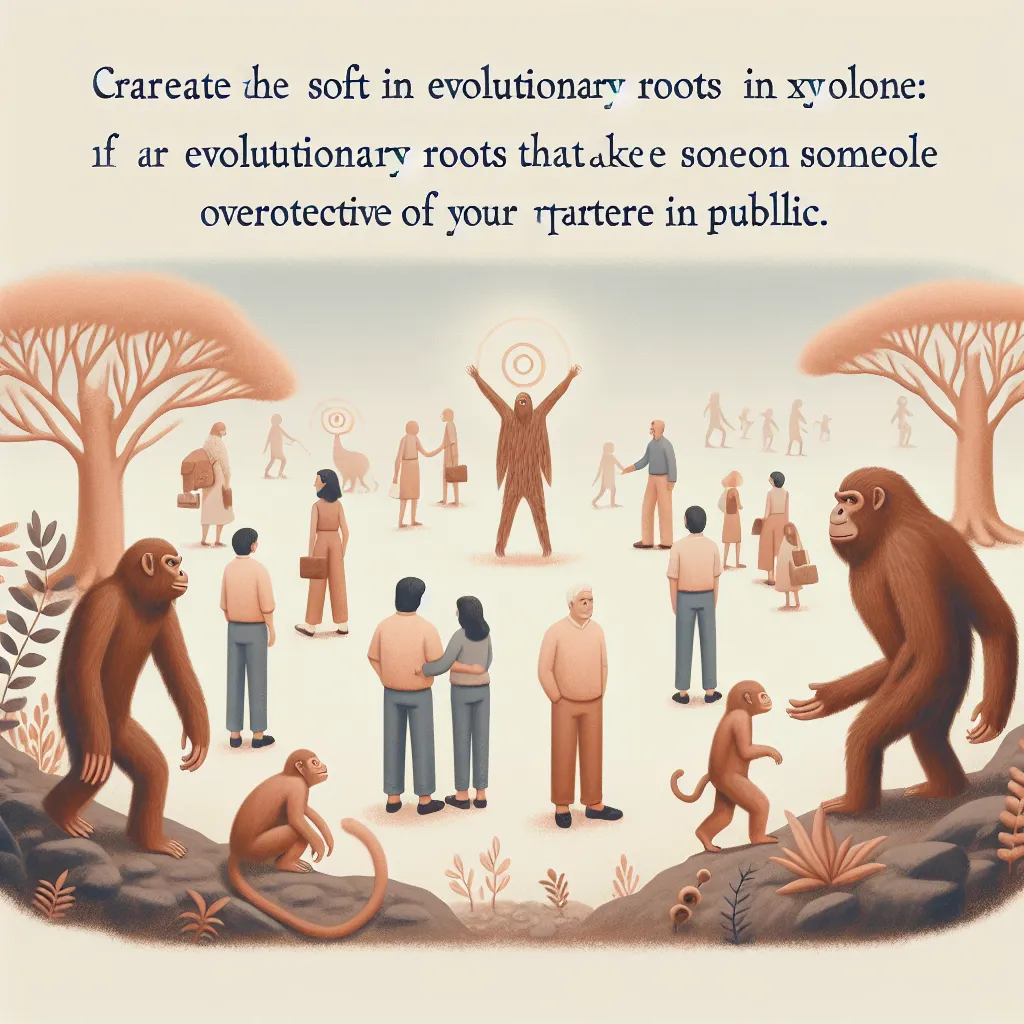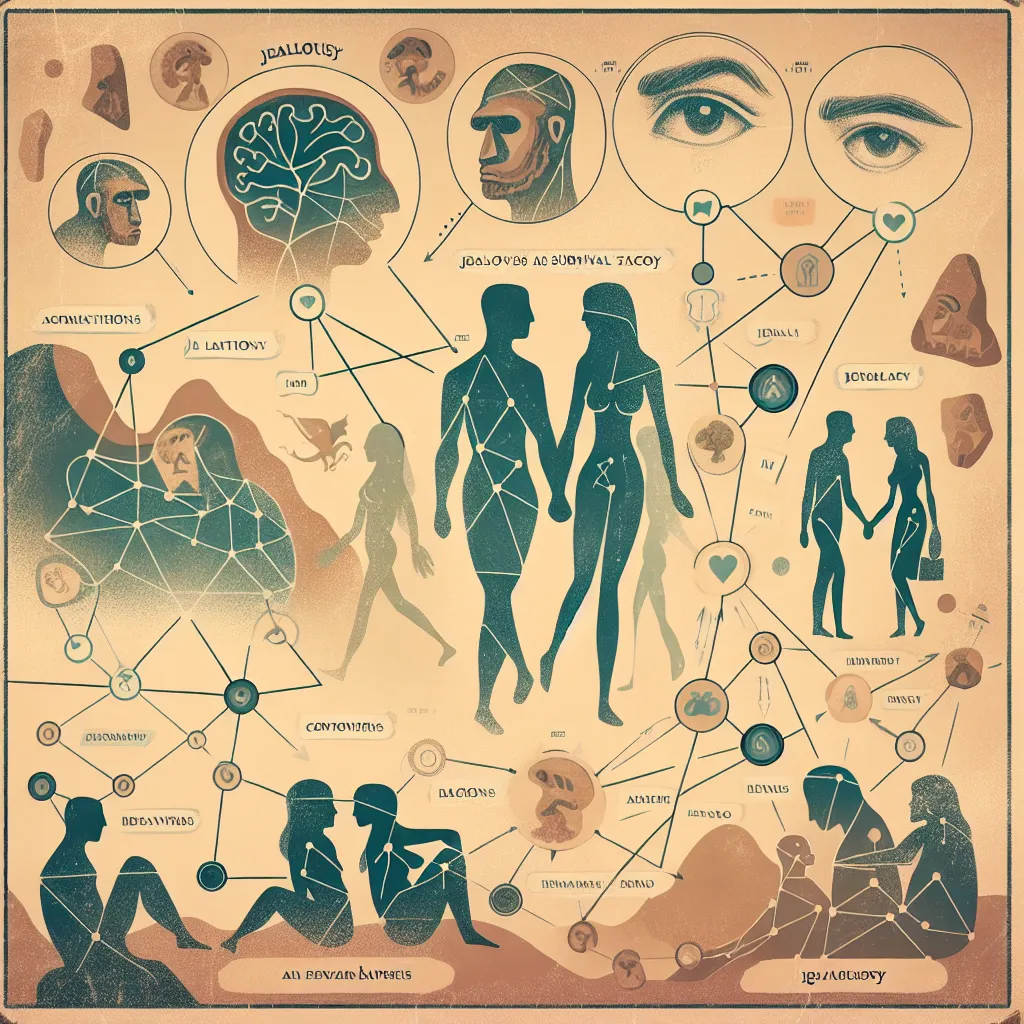Hello, relationship seekers!
Today, we’re diving deep into an important question about relationships: “What evolutionary roots explain the urge to stalk an ex after a breakup?”
The Direct Answer
The urge to stalk an ex-partner after a breakup can be traced back to evolutionary instincts related to mate retention and loss. Humans, like many animals, have developed ways to keep their partners and to react when they lose them. When a relationship ends, these evolutionary instincts can manifest as stalking behaviors, driven by a need to regain the lost mate or to ensure the ex-partitioner is not with someone else. However, this behavior is unhealthy and can lead to harmful consequences. Let’s explore the extensive evidence and details that support this answer:
1. Evolutionary roots of stalking
Stalking behavior post-breakup has a correlation with evolutionary instincts that have developed over time for mate retention and loss.
A. Mate Retention Strategies
– Expert Perspectives: Many experts, such as Buss and Shackelford, have explored the concept of mate retention strategies in their research. These strategies are evolutionary tactics developed to keep a partner and prevent them from leaving or being attracted to someone else.
– Psychological Research: Mate retention strategies can range from positive tactics such as showing love and affection, to negative tactics like inducing jealousy or even violence. When a relationship ends, these negative tactics can escalate and manifest in stalking behavior.
– Real-World Examples: For instance, a person may continuously call or text their ex-partner, trying to keep tabs on them or manipulate them into coming back.
B. Loss-induced Desperation and Obsession
– Historical Context: Historically, losing a partner could have severe consequences like loss of social status or resources, which may explain the intense reaction to a breakup.
– Common Challenges: People often experience a sense of desperation and obsession after a breakup. This can be exacerbated by factors like low self-esteem or pre-existing mental health issues.
– Practical Applications: Understanding these evolutionary roots can help individuals cope with breakups in healthier ways rather than resorting to stalking.
C. Biological Aspects
– Certain neurotransmitters, such as dopamine, serotonin, and oxytocin, play a role in love, attachment, and post-breakup behaviors. For example, a decrease in serotonin levels is linked to obsessive behaviors, which can include stalking.
2. Impact of Stalking Behaviors
Stalking, while rooted in evolutionary instincts, has a profound impact on both the stalker and the person being stalked.
A. Impact on the Stalker
1. Psychological Consequences: Stalking can lead to a further decline in mental health, exacerbating feelings of loss, rejection, and obsession.
2. Legal Repercussions: Depending on jurisdiction, stalking can lead to severe legal consequences, including restraining orders, fines, or even jail time.
3. Personal Repercussions: Stalking can also lead to isolation, as the person’s social circle may distance themselves due to this behavior.
B. Impact on the Person Being Stalked
– Stalking can have serious psychological and emotional impacts on the person being stalked, ranging from anxiety and depression to PTSD. It also poses potential physical danger.
C. Societal Impact
– At a societal level, stalking perpetuates unhealthy norms around relationships and breakups, which can have a detrimental impact on how young people, in particular, approach their relationships.
3. Managing Post-Breakup Feelings
Understanding the evolutionary roots of stalking behavior can help in managing post-breakup feelings in a healthier way.
A. Healthy Coping Mechanisms
– Engaging in Self-Care: Taking care of physical health can help manage emotional distress post-breakup.
– Seeking Support: Leaning on friends, family, or professional help can provide emotional support and practical advice.
– Focusing on Personal Growth: Using the breakup as an opportunity for personal growth and self-improvement.
B. Setting Boundaries
– It’s important to respect the ex-partner’s space and boundaries post-breakup. This includes refraining from invasive behaviors like stalking.
C. Seeking Professional Help
– If feelings of obsession persist, it may be helpful to seek professional help.
4. Additional Context and Considerations
While evolutionary roots provide some explanation for post-breakup stalking, it’s crucial to remember that it doesn’t justify the behavior.
Conclusion: The Definitive Answer
The urge to stalk an ex after a breakup can be traced back to evolutionary instincts related to mate retention and loss. However, it’s essential to manage these feelings in a healthy way, respect boundaries, and seek professional help if needed. Understanding the roots of this behavior not only helps individuals to cope better but also promotes healthier relationship norms in society.



